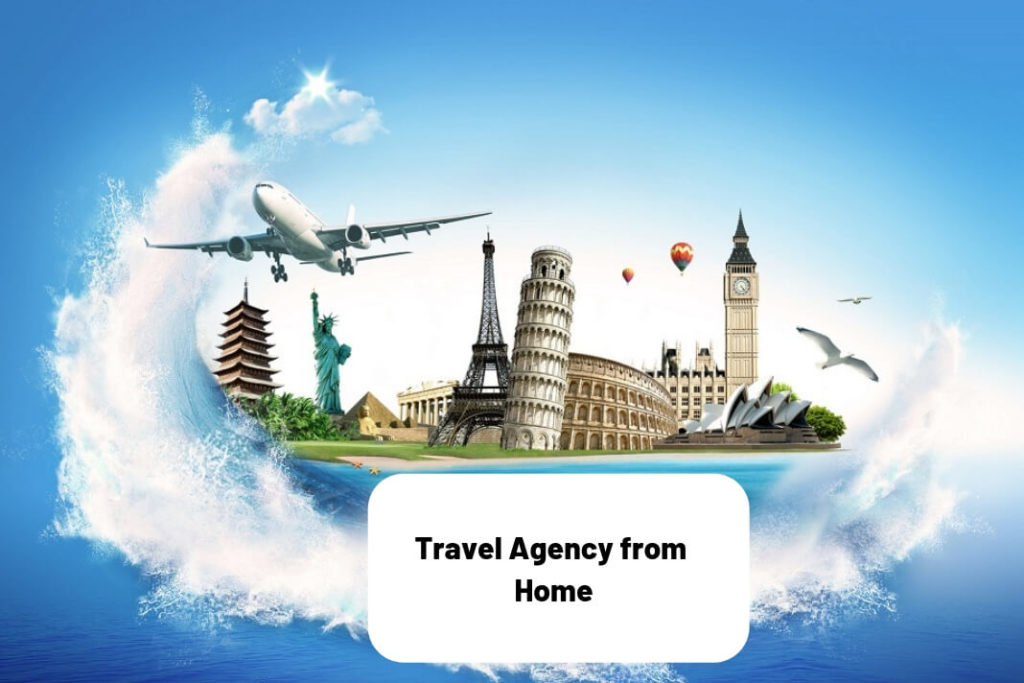
If you are someone who loves traveling, have traveled to many good places, loves the adrenaline rush of travel planning and processing, and enjoys helping others get the best travel experiences, then you should definitely start your own travel agency. The good news is you don’t need a huge start-up cost for this business, not even an office set up. In fact, you can start the business right from where you are now, at your home, in the comforts of your easy chair. Of course, you require a computer and a laptop. That is all you need.
That being said, starting a travel business, on the other hand, could be a mixed bag. Since the niche is fiercely competitive, you will have to put in a lot of effort, in terms of marketing, branding, costing, and market research, to be successful.
What the Industry Looks Like
Travel agents make traveling simpler and easier for customers, reducing all the hassles that go into searching, planning, scheduling, and booking tickets and hotels. Planning for a trip to Bali? Contact a travel agent and you will get more than three types of packages for the same destination. Starting an online travel portal is a good idea than a brick and mortar company. This is because, today most customers prefer using online platforms to search for information, buy tickets, book hotels, and go through travel packages.
Digital services are what people are opting for today, so much so that digital travel sales have increased to $180 billion in the United States alone. It is expected to be 213 billion by 2020. Then imagine the growth across the world! Future of online travel agencies is bright, Expedia being the biggest proof.
That being said, you can also choose to be a conventional travel agent and make a successful business out of it by earning commission from fieldwork. Whatever you plan to start, be it an offline travel agency or an online travel portal, you must follow the basics of establishing a start-up business. We have mentioned the founding steps you need to follow to start a travel agency on your own.
Step 1: Identify Your Niche
First of all, you have to identify your niche market you want to explore and establish the business. Identifying a niche that you have knowledge about, you are passionate about, and that has a considerable success rate is very important. Most start-ups make a mistake by wanting to sell everything without mastering in a single area. Your aim should not be being jack in all trades but being master in one. Only then, your niche customers will come to you. If you decide to sell all, you would be inviting a hard competition.
So, find a niche travel market. The more centric you become, the better will be the profit margin. To find your niche, you have to diligently research the market and recognize the less explored niches. Find out the emerging travel needs and current traveling preferences.
For instance, after your research, you may be surprised to find out that newly married couples prefer going hiking rather than conventional and relaxing honeymooning ways. So, you could be the travel agency who offers unconventional and special travel packages to couples.
Step 2: Start with a Business Plan
An effective business plan will help you sail through the business for the next several years smoothly. A business plan will help you identify the threats, weaknesses, and opportunities. It helps you keep right on track and backs you up throughout. It should be so concrete that it acts as a measuring tool for each process completion.
A business plan is not about setting the goal alone. It is more than that, such as future projections, financial projections, funding requirements, office set up, expenses and incomes, short-term goals, long-term goals, business vision and mission and so many other legal, financial, accounting and business strategies.
Your business plan should be based on your market research, analysis, and sales strategies. You have to consider the resources available to you and the resources you need. If required, contact a lawyer and a financial advisor for understanding business development and management better.
Step 3: Give Your Brand an Identity
Create a strong brand identity. Branding is important in all types of business, including a travel agency. Branding is all about bringing out the unique selling point of your company services and products. For example, we easily associate KFC with juicy and soft fried chicken.
One of the effective ways to branding is creating high-quality visuals, such as impressive website, brochures, business logo, business cards, ad campaigns, and social media pages.
You should be able to convey your brand message strongly through these visuals. You have to answer the question, “why customers will use my services instead of booking a trip themselves?” Unique services, unique offerings, and great customer experience create brand value.
Step 4: Establish Your Business Legally
To start a business, you need to register it as per the state law and establish it as a legal entity. The good news is, travel agency business doesn’t call for grueling legal obligations, unlike starting a hotel, a brewery or a hospital.
To start with, contact your state and local authorities and find out what legal obligations you will have to fulfill. Licenses and certification required vary from state to state and country to country. For instance, in the UK, you will need an Air Travel Organizer’s License and in California and Washington, a Seller of Travel License is compulsory.
Once this is done, you will have to form your business structure. Usually, a travel agency can be a sole proprietorship, a limited liability company, a limited liability partnership, or a corporation. However, most experts suggest forming an LLC, which suits a travel agency business needs from all aspects, both personally and professionally. Your business structure will depend largely on your business plans and growth plans, and how you plan to fund it.
There are pros and cons with each business structure. A sole proprietorship does not separate personal and business liability, while an LLC separates both, protecting your personal assets from business disputes and losses.
Step 5: Name Your Business and Open a Business Account
You will officially have to name your business. Now, don’t be in a hurry. You have to choose the name wisely and smartly. Don’t go for any trendy name. Instead, choose a name that would stay with you and which you will be proud of even after two decades. Also, your name should be relevant to the niche you plan to operate. Make sure that you look up the net or another directory to see if the name is not trademarked by another travel agency in your state.
Once you have come up with a name, apply for a Federal Employer Identification Number. Unless you have an EIN, you won’t be able to open a business bank account.
You should also trademark your business to eliminate copyright issues. Get your business logo legally registered from concerned authority.
Step 6: Budget Your Finances and Gather Funds
Although your starting costs should be fairly low, you will still have to determine how you plan to fund your travel agency. You will need funds for establishing a website, for tools for marketing and promoting your business, for advertising and branding, for renting and hiring (if any), and for paying your phone and internet bills.
You can use personal funds, crowdfunding, venture capital, angel investment, or bank loan to fund your business. The choice is yours and you have to select the option by weighing all possibilities, pros, and cons.
However, most travel agencies are self-funded because of low initial overhead costs. You can start the business with just $1500 to $2000.
Step 7: Choose Your Business Location
Skip this step entirely if you decide to start an online travel agency. If you plan to rent out or lease a place, then choose a location that is fairly accessible by travelers. Use a commercial place. Put up a signboard, which can be viewed from afar.
If you are starting out from your home, make sure you have a dedicated place for attending customers. Get a separate phone and internet connection for your business and a different mailbox for letters, so that your personal and professional correspondences are not mixed up.
Your office set up should look professional, while you should come off as a trustworthy brand.
Step 8: Marketing Your Travel Agency
The most important part of any business, especially now, is not forming it but marketing and promoting it. This is not applicable to start-ups alone, but it is valid for established businesses as well. Marketing should be an unceasing and evolving process. You have to apply different strategies and tools to appeal to customers.
Start by posting ads locally in local newspapers and magazines, then proceed to advertise on church bulleting, distribute flyers and leaflets in suitable places such as travel bags and accessories shops, supermarkets etc., and leave company brochures to friends and relatives.
Implement online marketing and use the different tools and medium the internet offers for marketing and promotion. Some of the cost-effective online marketing strategies include social media marketing, SEO, blogging, and influencer marketing.
You can also try other effective ones as well, such as PPC, video marketing, ad campaigns, and Google Analytics.
Whatever strategy you apply, the most important thing that will profound your marketing efforts is your website. Spend your time and money in establishing a best and all-inclusive travel portal.
Your website should have everything and more. Hire an able web developer and use their expertise in creating best design, layout, pages, and content.
Step 9: Network and Focus on Building Relationship
Last, but not least, you have to pay close attention to building rapport with new and existing customers. A Business cannot thrive without customers and you should put maximum effort in establishing a strong, loyal, and ever so expanding customer base. Give your customers best travel experience, right from food, local tour guides, hospitality, and transportation to value-added services. Make sure you treat each customer as your houseguest.
Address complaints and resolve them as quickly as possible. Answer your customer queries and provide them travel related facts, information and sources through videos, blogs and short notes.
Don’t wait for clients to come to you, don’t wait for sales opportunities, don’t wait for the season to start. Instead, step out, approach your potential customers, and seize the opportunity with both hands.
Start with small and with each effective stepping-stone, explore, and bring in more elements. All the best for your new venture! Don’t hesitate to ask questions in comments; we are here to answer them all, travel and business both.




